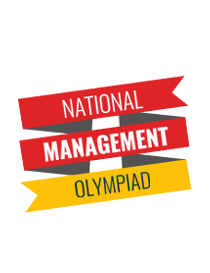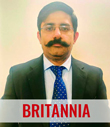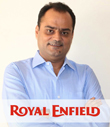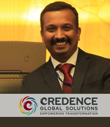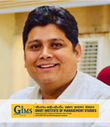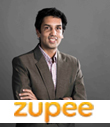- Home
- About
- Heritage
- NMO Season 5 (Year 2023)
- NMO Season 4 (Year 2021)
- NMO Season 3 (Year 2021)
- NMO Season 2 (Year 2020)
- NMO Season 1 (Year 2019)
- NMO Season 5 (Year 2023)
- NMO Season 4 (Year 2022)
- NMO Season 3 (Year 2021)
- NMO Season 2 (Year 2020)
- NMO Season 1 (Year 2019)
NMO Season 5 (Year 2023)
NMO Season 4 (Year 2022)
NMO Season 3 (Year 2021)
NMO Season 2 (Year 2020)
- NMO Season 6
- FAQ
- Knowledge Base
Any Query?
Call Now: on +91 120 424 1617
Call Now: on +91 120 424 1617

National Management Olympiad is an Initiative of Federation of Industrial Education.
A-105, Logix Technova, Plot A-4 Sector-132, Noida (U.P.) 201304, India [email protected]
Open in Google MapsInterview - Ms. Vandana Tilwani
N
a
t
i
o
n
a
l
M
a
n
a
g
e
m
e
n
t
O
l
y
m
p
i
a
d
" without self-discipline, success is impossible."
Q. Dear Ms. Tilwani, You have worked at various HR Positions across industries, and transitioned into an effective HR Leader, can you please help our readers/viewers, with your opinion on “How someone should look at career decisions in their initial years”?
One should have a curious mind when it comes to the initial years of their career. What I mean is to be in a constant learning and absorbing mode. The initial years will set the tone for the future and the aim should be to get as much exposure as possible. This could mean trying out multiple career options, or working in different industries or even changing your mind frequently about your chosen career. The rule is that there are no rules.
Q. What are the biggest professional challenges you faced and how did you overcome that?
In retrospect, life looks like a cake-walk now, and it’s difficult to believe the ups and downs that I’ve been through in my professional life. What a journey it has been!
For me the biggest challenge has been to ‘stay true to myself’ throughout the 20+ years of my professional journey. The corporate world can be quite demanding and expects you to toe-the-line which often requires you to change who you are as an individual. In the corporate world, your success is measured based on your ability to engage and interact with other people. Being an ‘introvert’, I’ve had to work on my shyness and detachment and come out of my comfort zone, especially to succeed in a department that is all about people, i.e. Human Resources.
Q. Ms.Tilwani, as You lead your current organisation as CHRO and manage different teams,ina hectic daily schedule as a leader what are the 3 most important action points you always follow?
I really enjoy what I do and manage and organise my time in a manner where work schedule is always balanced. It’s important that I keep the sanity in my schedule and life so that I’m able to be my best and deliver results. Having said that, sometimes there are things that are beyond my control and over the years I have learned how to manage such eventualities.
There are some things that I find essential and do not compromise on:
One: I like to start my day early as I’ve discovered that I’m most productive in the first half. So any work that requires thinking and focus tends to find its way into my morning schedule. I need to get the most important work out of my way first thing in the morning. This gives me a sense of achievement and sets the tone for the rest of the day.
Two: I’m always on time for meetings, in fact a few minutes before time. I spend some time preparing for meetings to ensure they’re productive for everyone. I like to respect other people’s time and ensure that I’m not only in the meeting on-time but also make the best use of it.
Three: I try to stick to my workout routine, not matter what. My fitness and wellness routines are a big source of energy for me that fuel the rest of my engagements and activities. I might, sometimes, reschedule the sessions, however, I’ll ensure that the week’s quota is met somehow.
I believe that without self-discipline, success is impossible.
Q. are the biggest mistake/s an aspiring leader who is at the start of her/his career, should avoid?
Often aspiring and growing leaders struggle to let go of control and insist on micro-managing or doing things themselves. While this is only natural because there’s a transition and learning phase when one has moved from an individual contributor role into a people management role, they should ensure that the sooner they learn to build trust with their teams the faster they’ll be able to justify their new role as a leader and therefore start making an impact.
This is important not only in terms of developing trust and bond with the team, but also for the new leader’s personal growth. If too much time is spent on just doing and micro-managing, there’ll hardly be any time for leading, inspiring, strategizing and innovating which is what is expected of the leader.
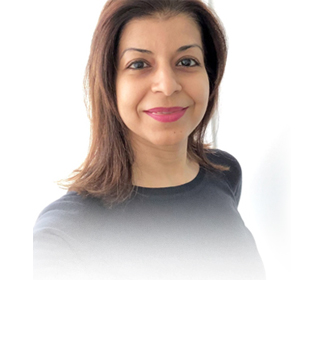
Q. How a human being can achieve Mindfulnessovercoming stressful and anxiety of daily life?
It’s important to find a balance in everything in life. Excess of anything is bad. In moderation, even alcohol can be enjoyed without any harmful effects. You need to define your balance yourself. It’s your own personal measure based on your judgement and experience. I have found that extreme emotions, behaviours and responses, especially in a professional environment cloud judgement and objectivity turning everything into a personal problem. One must avoid that.
To be objective in every situation without getting emotionally attached can go a long way in mindfully coping with stressful situations. The constant concern about the past and future is the biggest cause of stress in people today. Focusing on what is here today, right now, will allow you to enjoy every moment and every experience.
Q. If you must give some life advice, what would you suggest to your 20 years old self?
I would tell my 20-year old self to travel more and see the world. I believe that travel opens your mind like nothing else and a stretched mind allows you to be open and tolerant to diverse opinions, behaviours, people which in turn makes you more flexible and reasonable when dealing with people.
Another thing I would advise my younger self would be to pick up yoga much sooner. While I’ve been practicing yoga for more that 15 years now, I believe if I had started sooner, I would’ve made fewer mistakes and handled life’s challenges in a better way.
Q. Kindly Rate below parameters in Work From HomeEnvironment. (on scale of 1 to 10where 1 is least and 10 is best)
A. Productivity - 6
B. Mental Health -6
C. JOB satisfaction - 8
D. Team Co-ordination - 7
E. Ideation - 8
